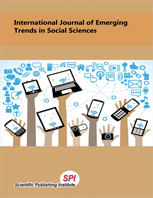Reflections on Decentralization, Community Empowerment and Sustainable Development in Cameroon
DOI:
https://doi.org/10.20448/2001.12.53.60Keywords:
Decentralization, Community empowerment Sustainable development Cameroon.Abstract
Good governance and development discussions shed light on the role of citizen participation as a fundamental mechanism of achieving sustainable development in local communities. The current popularity of decentralization, especially in the developing world, is unparalleled, with 80% of all developing and transition countries undertaking some form of decentralization over the past two decades. As of July 2004, the Cameroonian house of parliament promulgated into law, three bills on decentralization. Under the provisions of the laws of 2004, there is the devolution of powers accompanied by the transfer of means (financial, material and human), to local councils. This move to decentralize power, authority and resources is seen as a logical way forward to bring development closer to the people not only in terms of actions, but also in terms of their development choices. Although emphasis is placed on the need for communities to achieve sustainable development, the role of decentralization is primordial. This paper posits that decentralization, if effectively implemented, could serve as a panacea to the sustainable development impasse of local communities in Cameroon. It holds that a highly inappreciable level of decentralization that characterizes the Cameroon society has been the bulwark to sustainable development of communities. The paper recommends the need to speed-up the process of decentralization by undertaken effectively reforms and creating timelines for targets towards decentralization and sustainable community development through empowerment.


